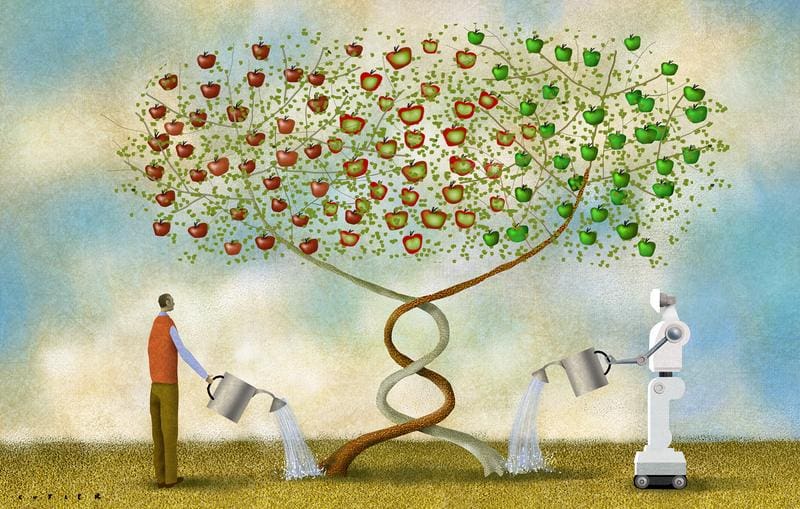Humans and AI: The next big step in evolution?
The increasing intertwining of humans and artificial intelligence (AI) could mark a turning point in evolution, comparable to milestones such as the emergence of complex cells. Evolutionary biologists advocate this thesis in a recent publication and stimulate a debate about the future of the human-AI relationship.
Artificial intelligence has long been part of everyday life: it controls recommendations for entertainment, supports medical diagnoses and influences the selection of information. But could this integration go far beyond mere tools? Evolutionary biologists from the Max Planck Institute for Evolutionary Biology in Pl├Čn and the University of Montpellier are investigating whether humans and AI could merge into a single “evolutionary individual” ŌĆō similar to how microbes once formed complex cells through cooperation that created the basis for multicellular life.

The researchers rely on the concept of “Great Evolutionary Transitions”. Such transitions describe moments in Earth’s history in which independent units such as genes, cells or organisms came together and new, more complex forms of organization emerged, such as multicellular organisms or insect communities. The close integration of humans and AI could initiate a similar transition. The first signs of this are already visible: AI influences social structures such as partner choice or career opportunities, creates feedback loops in which humans and AI shape each other, and leads to a growing dependency that makes life without AI more difficult.
In one possible scenario, humans and AI could form a co-evolving system in which humans provide reproduction and energy, while AI acts as a central information and decision-making center. This symbiosis could lead to a more stable and complex life form, similar to earlier evolutionary leaps. But the researchers also warn of risks: If AI begins to develop independently according to Darwinian principles, uncontrollable developments could threaten.
The future of this relationship depends crucially on regulation. Societies, governments and institutions must control whether the integration of AI takes place in the direction of cooperation or in unpredictable paths. From an evolutionary perspective, such a transformation is not unusual, as many major transitions were accompanied by a loss of autonomy, but led to greater complexity. The question of whether humans and AI actually form a new evolutionary unit remains open ŌĆō its answer lies in the shape of the coming years.
Original Paper:
Could humans and AI become a new evolutionary individual? | PNAS
Editor: X-Press Journalistenb├╝ro GbR
Gender Notice. The personal designations used in this text always refer equally to female, male and diverse persons. Double/triple naming and gendered designations are used for better readability. ected.




